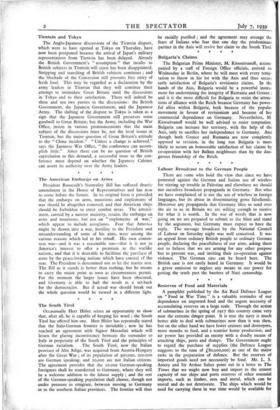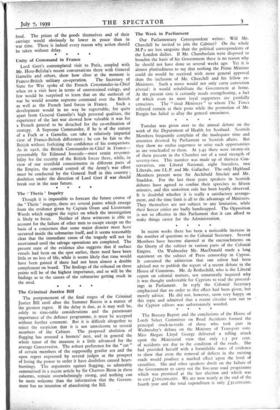Reserves of Food and Materials A pamphlet published by the
Air Raid Defence League on " Food in War Time " is a valuable reminder of our dependence on imported food and the urgent necessity of accumulating reserves on a large scale. Through the action of submarines in the spring of 1917 this country came very near the extreme danger point. It is true the navy is much better able to deal with submarines now than it was then, but on the other hand we have fewer cruisers and destroyers, more mouths to feed, and a scantier home production, and air power has provided an enemy with a deadly means of attacking ships, ports and dumps. The Government ought to regald the purchase of supplies (the Defence Les5ue suggests to the tune of L8o,000,000) as one of the major tasks in the preparation of defence. But the reserves of imported goods need not necessarily be food. Mr. L. S. Amery and Sir Arthur Salter point out in a letter to The Times that we might now buy and import to the utmost capacity of our ships and ports reserves of other essential imports, such as timber, ores and metal, which can be stored and do not deteriorate. The ships which would be used for carrying these in war time would be available for food. The prices of the goods themselves and of their carriage would obviously be lower in peace than in war time. There is indeed every reason why action should be taken without delay. * *











































 Previous page
Previous page